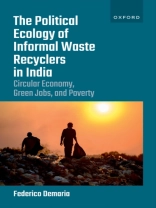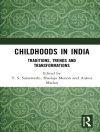Waste is increasingly a site of social conflict. The questions related to waste management are not merely technical; what, how, where, and by whom become intrinsically political questions. This book is about the power relations in recycling, from the viewpoint of political ecology and ecological economics. Informal waste recyclers are invisible for citizens and public policy. This book focuses on environmental conflicts involving them, with two emblematic case studies from India. Firstly, ship breaking, where the metabolism of a global infrastructure, namely shipping, shifts social and environmental costs to very localized communities in order to obtain large profits. Secondly, the conflict around municipal solid waste management in Delhi shows how environmental costs are shifted to urban residents, and recyclers are dispossessed of their livelihood source: recyclable waste. The first is an example of capital accumulation by contamination, while the second involves both dispossession and contamination. The struggles of informal recyclers constitute an attempt to re-politicize waste metabolism beyond techno-managerial solutions by fostering counter-hegemonic discourses and praxis. The book presents a range of experiences, mostly in India but with examples from all over the world, to inform theory on how environments are shaped, politicized, and contested.
Federico Demaria
Political Ecology of Informal Waste Recyclers in India [PDF ebook]
Circular Economy, Green Jobs, and Poverty
Political Ecology of Informal Waste Recyclers in India [PDF ebook]
Circular Economy, Green Jobs, and Poverty
Mua cuốn sách điện tử này và nhận thêm 1 cuốn MIỄN PHÍ!
Ngôn ngữ Anh ● định dạng PDF ● Trang 224 ● ISBN 9780192695680 ● Nhà xuất bản OUP Oxford ● Được phát hành 2023 ● Có thể tải xuống 3 lần ● Tiền tệ EUR ● TÔI 9085562 ● Sao chép bảo vệ Adobe DRM
Yêu cầu trình đọc ebook có khả năng DRM












